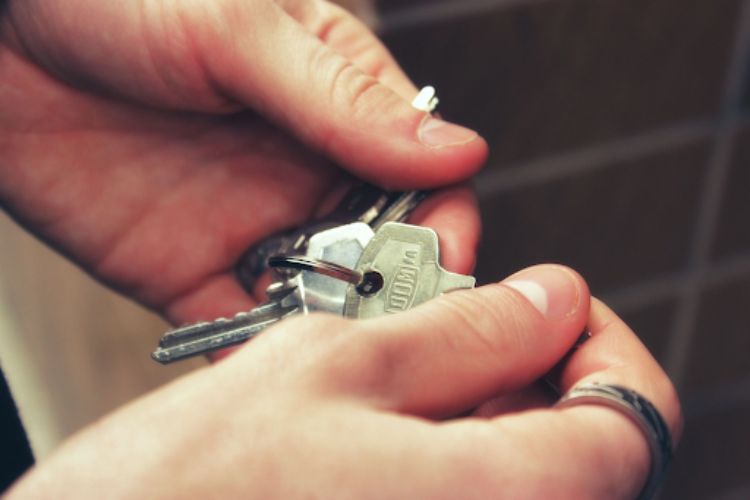 Did you know there are a number of ways to save money on your mortgage? Perhaps you’ve heard of some of these methods before, but did you know there are specific actions you can take as a homeowner to help reduce the cost of your monthly mortgage payment?
Did you know there are a number of ways to save money on your mortgage? Perhaps you’ve heard of some of these methods before, but did you know there are specific actions you can take as a homeowner to help reduce the cost of your monthly mortgage payment?
There are many “tricks” or hacks that savvy homeowners have discovered over time to reduce the cost of their mortgage and make their homes more affordable.
These tips aren’t just helpful for new homeowners, but they can also be utilized by current homeowners who are considering refinancing in order to save money on their monthly payments. With the rising cost of living in most cities, reducing your mortgage as much as possible is imperative.
Know Your Options Before Buying a Home
Before you make the commitment to buy a home, research the best mortgage rates and lender options available to you in your area. You can start by talking with your current lender to see if they offer lower interest rates for homeowners who have a credit score higher than 680.
You’ll also want to make sure your credit score is high enough to qualify for a mortgage. Additionally, make sure you understand the specific home loan options available to you.
Some common home loan options you may want to consider include fixed-rate mortgages, adjustable-rate mortgages, a home equity line of credit (borrows against the value of your current home), and VA loans for military members. Which loan option is best for you will depend on your personal financial situation and goals moving forward.
Shop Around for the Best Mortgage Rate
One of the best ways to save money on your monthly mortgage payment is to shop around for the best rates. Mortgage rates are always changing, and you never know when they might spike or drop.
To make sure you’re always getting the best rate possible, regularly check mortgage rates online to see which ones are currently available in your area. You can also call a few mortgage lenders in your area to see what rates they offer. If you have
a low credit score, you may have trouble finding a lender who will approve you for a mortgage. In this case, you may want to consider getting a mortgage credit repair service. They can help improve your credit score, making it easier for you to get approved.
If you have a high credit score, on the other hand, you may want to consider refinancing your home loan with a lower interest rate. You can search for lenders in your area to get the best deal.
 Lock In Your Interest Rate
Lock In Your Interest Rate
Some homeowners choose to play the waiting game to get the best interest rate when refinancing their mortgage. The logic is that the homeowner can wait until the interest rates go down before refinancing their mortgage. While this may be a good theory, it rarely ever works out in real life.
Instead, homeowners should lock in their interest rate as soon as they find the best rate available. Waiting to refinance your mortgage may cause you to lose out on hundreds or even thousands of dollars in interest savings. If you have a good credit score, you can get approved for a low-interest rate when refinancing your mortgage.
Make a Small Payment Towards the Principal Each Month
In addition to shopping around for the best interest rate on your mortgage, you can also save money by paying down your mortgage principal each month. Most mortgage lenders offer a “pay-ahead” or “extra payment” option that allows homeowners to make one extra monthly payment towards the principal.
You can save thousands of dollars on your mortgage by doing this. You can see how much this would save you by plugging your numbers into a mortgage calculator online. Make sure you add this extra payment to both your standard payment and your escrow payment if you have an escrow account.
Pay Off Your Least Amount of Interest Loan First
When you’re making extra payments towards your mortgage, you may be tempted to put the largest amount towards your highest interest rate loan. While this makes sense, it’s usually better to pay off your loan with the smallest amount of interest first.
Once you’ve paid off your lowest amount of interest loan, you can then start putting larger payments towards your highest amount of interest loan. This will save you time and money in the long run when compared to putting a large amount of money towards a smaller amount of interest.
 Don’t Forget About Taxes
Don’t Forget About Taxes
Don’t forget about taxes when figuring out your monthly mortgage payments. If you’re considering refinancing your mortgage, make sure you factor in the taxes and fees that will come with this new loan. A mortgage calculator can help you figure out the new payment amount after refinancing.
In addition to your new mortgage payment, you should also plan for additional taxes and other fees that will go toward closing costs. You may also want to work with a real estate agent to help you find a new home if you’re interested in buying a new home after refinancing your mortgage.
Mortgage Relief Options
Before refinancing your mortgage, you should check to see if you qualify for any mortgage relief options. If you bought your home during a time of high-interest rates, you may qualify for mortgage relief programs that help homeowners refinance at a lower interest rate.
You can also check to see if you qualify for any forgiveness programs if you work in a public service industry like being a teacher, police officer, or firefighter. These programs forgive a certain amount of debt per year and help you reduce the amount you owe on your mortgage.
Conclusion
There are several options to try and lower your mortgage payments and make the most of your money. While not all options work for everyone, if you do some digging you can find one that works well for you.




